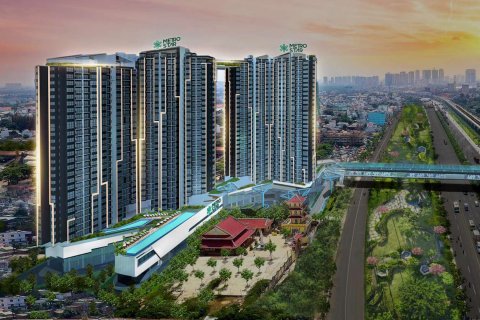
With the implementation of Housing Law No. 65/2014/QH13 in 2015, foreign citizens and investors are now free to purchase real estate in Vietnam. If you're a citizen of another country and own property in Vietnam, it's important to be aware of your tax obligations to avoid potential problems with the authorities. In this article, we will explain these tax responsibilities.
Content:
- Mandatory taxes for non-resident property owners
- How to pay taxes in Vietnam
- Advantages of investing in real estate in Vietnam
- Let us help you buy property in Vietnam!
Mandatory taxes for non-resident property owners
When buying or selling property in Vietnam, there are several taxes and fees to consider:
- Value-added tax (VAT): This tax is levied on the sale price of the property as stated in the sale contract. The buyer usually pays this tax. The current VAT rate is 10%.
- Registration fee: Paid to the government and usually split between the buyer and seller. The fee is 0.5% of the value of the property.
- Notary fees: Paid to the notary handling the transaction, typically ranging from 0.05% to 0.1% of the property's value.
- Property tax: Collected by local authorities and depends on the assessed value of the property. The rate can vary from 0.03% to 0.15% of the assessed value.
- Capital gains tax: Applicable when selling real estate in Vietnam. The current rate is 20% and is calculated on the difference between the sale price and the purchase price.
- Inheritance tax: Applies to inherited property and varies depending on the value of the property and the relationship between the deceased and the heir.
- Gift tax: If you give Vietnamese property as a gift, this tax may apply. The rate depends on the value of the property and the relationship between the donor and the recipient.
Property income tax: If you rent out your property, you'll be subject to income tax ranging from 5% to 20% depending on the rental income.

How to pay taxes in Vietnam
First, you must obtain a tax code, also known as a tax identification number. In Vietnam, this is a unique number assigned to taxpayers. To get one, you can apply to the tax office where your property is located. You can also apply through the online portal https://canhan.gdt.gov.vn.
Note that you'll need to submit signed paper copies of the application to the tax office to activate your tax code and be able to file returns online. After receiving the code and registering it, you can submit documents and make payments online.
Taxpayers can choose the method of filing and paying real estate income tax quarterly, annually, or when the income is earned. To declare and pay property income tax, you can use Form 01/TTS, which is submitted through the aforementioned online portal.
Official Letter No. 5262/TCT-DNNCN issued by the General Department of Taxation of Vietnam on December 11, 2020 confirms that non-residents receiving income from renting investment property in Vietnam have the same tax obligations as local property owners. Currently, Vietnam has about 80 double taxation agreements (DTAs) with other countries. These should also be considered to avoid overpayment.
If you have any questions regarding tax obligations related to real estate transactions and property management in Vietnam, we recommend that you consult a lawyer for more detailed information.
Advantages of investing in real estate in Vietnam
Vietnam has positioned itself as one of the most promising investment destinations in Southeast Asia. Stable social and political conditions create a strong foundation for successful real estate investment. Vietnam's numerous international agreements and its membership in ASEAN provide extensive opportunities for foreign investors. The diversity of export goods makes the country a key player in the region, and the influx of tourists offers good prospects for the rental business. In 2022, Vietnam's GDP will grow by 8.02%. This increase is due to expanded manufacturing, a growing middle class, and increased foreign direct investment (FDI). Vietnam's government policies, including tax incentives and special economic zones, are further encouraging this growth.
Today, you have a great opportunity to purchase high-demand real estate in a developing country. Although property in Vietnam is leased to foreigners for 50 years, the owner has full control and can extend the lease after this period.

Let us help you buy property in Vietnam!
On our real estate aggregator website, you'll find the latest property listings from trusted developers and agencies. You have access to a wide range of options in one place, saving you the hassle of searching multiple websites. Our platform offers a user-friendly interface for searching and filtering properties based on various parameters such as price, location, and size. Prices are displayed in dollars and euros for your convenience. We wish you the best of luck in finding your future home in Vietnam!









